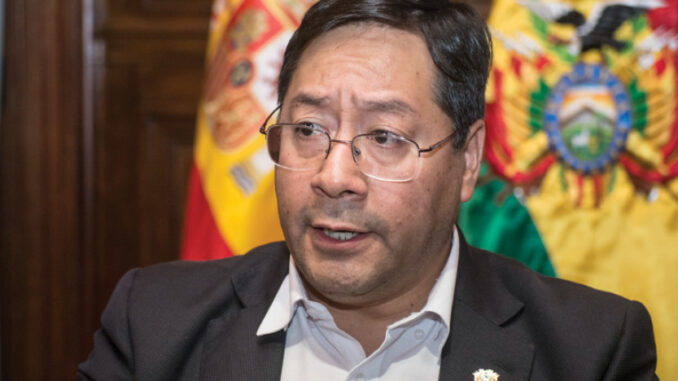
Bolivia has once again been thrust into a political crisis with an attempted coup on Wednesday 26th of June. Reflecting the powerful revolutionary traditions the main trade union confederation COB rapidly declared an indefinite general strike. The attempted coup appeared to collapse after only three hours and as workers and others took to the streets in protest. Bolivia’s turbulent convulsive history is reflected in 190 military coups or revolutionary uprisings since independence in 1825.
However, what forces were actually involved seems unclear. The government of President Luis Arce of the MAS has swung further to the right since it eventually replaced the MAS government led by Evo Morales after it was overthrown by a US backed coup in 2019. Morales fled the country rather than lead a mass struggle against the white, mestizo racist elite regime which ousted him. Luis Arce took office on November 8th 2020 having defeated the right-wing backed regime which ousted Morales. Arce, an economist educated in Oxford, only returned to the country in 2020.
Now both Morales and Arce have been locked into a struggle as both have declared their intention to stand for the Presidency in 2025 as the MAS candidate.
Since the coup collapsed 17 coup plotters have been arrested including its leader Army General Juan Jose Zuniga and Rear Admiral Juan Arnez Salvador chief of the navy in a country landlocked for 140 years since losing a war with Chile. The military forces attempted to seize the governmental palace, Palacio Quemado.
Zuniga appears to have been sacked by the government a day earlier which he reportedly readily accepted as a loyal “soldier of the homeland”. Supporters of Morales and the right-wing opposition have since alleged the coup was instigated with the support of Arce in an attempted “autogolpe” – self coup – to consolidate his regime in power. Such allegations in the past would have seemed fanciful, but in the current era of instability and polarization such a claim cannot simply be discounted.
Despite swinging further to the right and provoking struggles by workers and others Arce’s government has presided over attacks on the working class as the economy has entered crisis triggered partly by a massive fall in gas production and exports while, at the same it has also collided with the interests of western imperialism by increased links with China.
New discoveries have pushed Bolivia to the top rank of countries with lithium deposits, crucial for the production of EV car batteries. In June it agreed a deal with the Russian state nuclear conglomerate Rosaton and the Chinese Citic Guoan company to mine 45,000 tons of lithium. Between January and November 2022 Bolivia only mined 635.5 tons. Citi Guoan is considering producing lithium batteries and EVs in Bolivia which would have a significant effect on the development of some industry in the country. Developments that would also heighten tensions with western imperialist powers.
The mobilisations which took place against the coup illustrated that, despite the right-wing shift of the Arce government, the working class and mass of the indigenous population which are a majority in Bolivia are not prepared to accept the rolling back to the repression and discrimination which was rife in Bolivia prior to Morales initially coming to power. The same is true in most of Latin America at this stage. However, this does not mean that repression and an eventual recourse to military or Bonapartist regimes will not take place if the working class and masses threaten the interests and rule of the capitalist class. The attempted coup in Bolivia illustrates the need for a struggle to break with capitalism and establish a government of the working class and the oppressed remains a crucial necessity.
